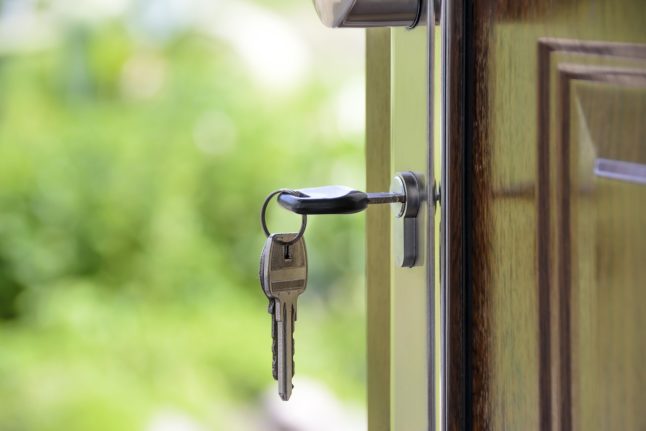These and other housing-related questions are answered in a new survey published by the Federal Statistical Office (FSO) on Monday.
These are some of its main findings.
Living space is determined by nationality
In each canton, Swiss nationals have more living space at their disposal than their foreign counterparty, the study found.
The national average for a Swiss household of two or more persons is 44.6 sq/m, while for foreign households it is 30.8 sq/m.
Looking at some cantons, in Zurich, that ratio is 43.5 sq/m for Swiss and 30.8 sq/m for foreign residents.
In Geneva, it is 36.2 vs 28.4; in Basel-City 38.8 vs 29; and in Vaud 42.7 vs 30.4.
The highest disparity, however, was found in Thurgau: 50.5 vs 34.3.
READ ALSO: How foreigners in Switzerland have worse living conditions than the Swiss
Owners vs. tenants
It comes as no surprise to anyone who is familiar with Switzerland’s housing market that far more people rent their dwellings than own them.
Just over 1.4 million accommodations (both homes and apartments) are owned by the people who live in them, while 2.4 million are occupied by renters.
The reasons for this trend, which contrasts with the rest of Europe, include the high cost of land and properties, as well as the fact that Switzerland’s tax system favours tenancy over ownership.
READ ALSO: Why do so many in Switzerland rent rather than buy a home?
Highest and lowest rents
The study confirmed that Zug has highest rents in Switzerland — the average cost is 1,850 francs. This fact is party due to the scarcity of available housing plaguing the tiny canton.
READ ALSO: Why does Zug have Switzerland’s ‘most acute’ housing shortage?
Zurich, which has been suffering from housing woes of its own, is in the second place (1,654 francs), followed by Schwyz (1,616).
Rents in five other cantons are also above the Swiss average of 1,412, francs.
They are Geneva (1,504); Nidwalden (1,495); Basel Country (1,468); Vaud (1,416); and Aargau (1,415).
The most affordable rents, on the other hand, are to be found in Jura — a mere 986 francs.



 Please whitelist us to continue reading.
Please whitelist us to continue reading.
Member comments